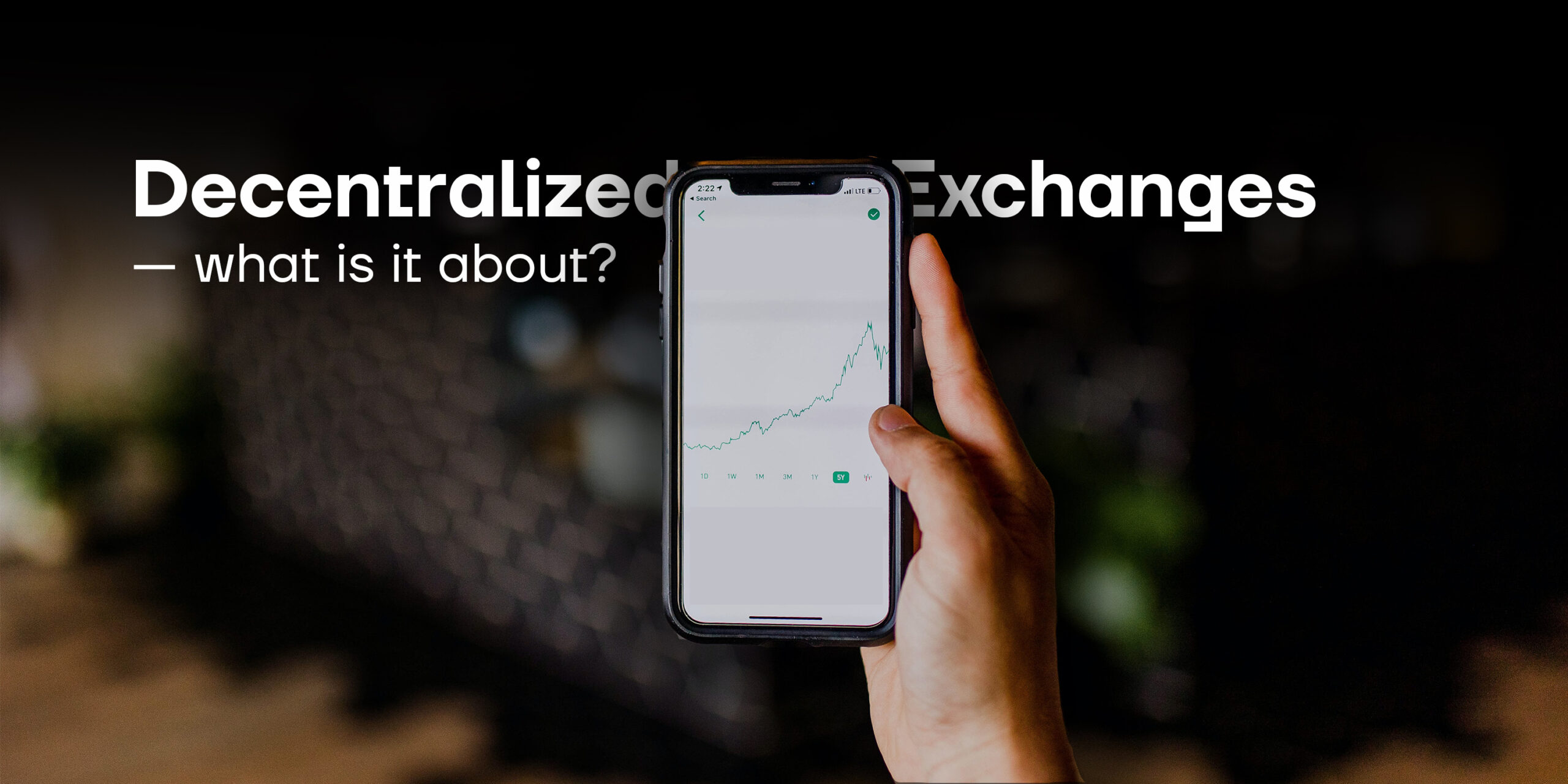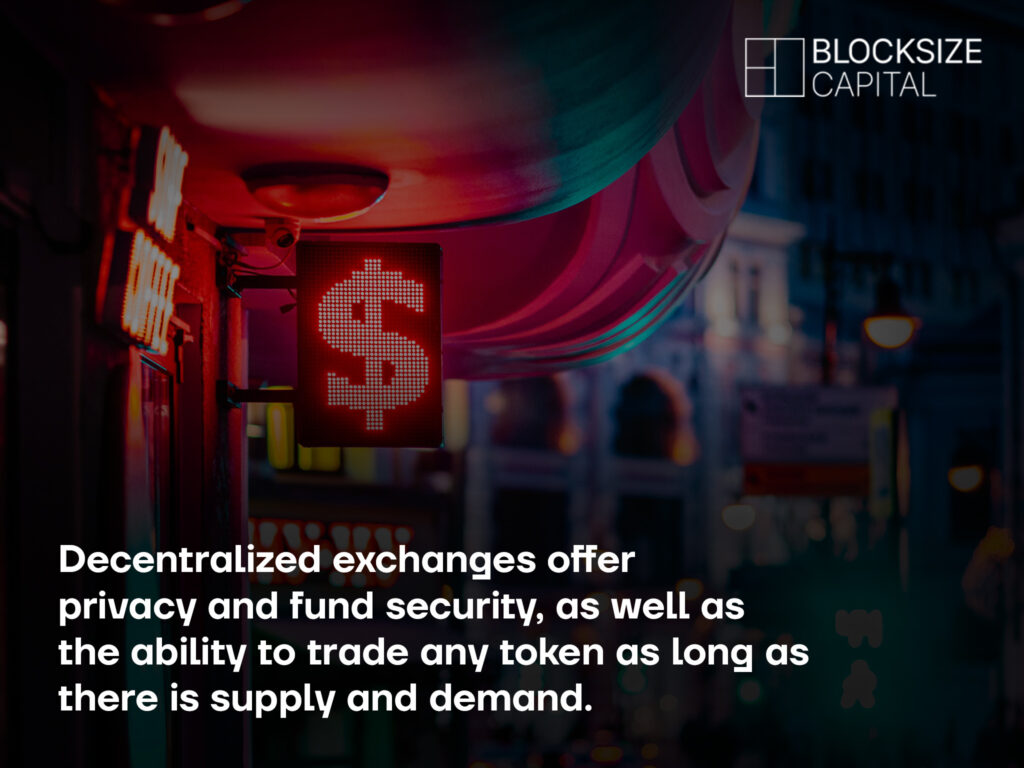Decentralized Exchanges – what is it about?

by Dragan Djekov
Decentralized exchanges – or DEX for short – are exchanges that replace overseeing third parties with distributed ledgers or a blockchain, allowing direct peer-to-peer cryptocurrency transactions.
There are three main types of these, and while all act non-custodially, their decentralization levels differ.
The first type is relating to exchanges with on-chain orderbooks, meaning everything happens on the blockchain, and while it is the most transparent approach, it is slow and has a minor front-running risk.
The second type pertains to exchanges with off-chain orderbooks, where orders are managed by a central entity or by parties and execute on the blockchain when matched, and while faster, they rely on the reliability of the parties or central entities.
The final type considered is Automated Market Makers which eliminate orderbooks by using formulas and game theory, and they are easy to use. There are two prominent examples of these, Uniswap and Sushiswap, which are two competitors in the same area.
Both of these are built on the Ethereum network and are essentially automated liquidity protocols that have a liquidity pool and price to smooth out orderbook depth. The protocol keeps total liquidity constant and adjusts prices according to their share of total volume in the pool of a currency pair.
These exchanges rely on liquidity providers pooling their tokens, and as a result, they provide tokens such as SUSHI or UNI to incentivize this. During the Uniswap – Sushiswap competiton’s heated times, Uniswap has even provided a retrospective airdrop for early adopters.
These AMM projects are both open source and have developer communities and forums with thousands of members, letting users to actively shape the system. Apart from engagement through participation, they provide easy to understand explanations and friendly designs to facilitate adoption.

The most important advantages of these decentralized exchanges are privacy (especially with the ones that offer KYC-less participation), along with fund security and the ability to trade any token as long as there is supply and demand, even if these tokens aren’t listed on centralized exchanges.
However, there are some disadvantages to keep in mind. These range from the opportunity cost of pooling tokens instead of “HODLing” or actively trading, to the possibility of price slippage due to big deals, or in some cases, due to small liquidity pools.
The decision is as always personal based on preferences, but it is an important step in the landscape of blockchain, cryptocurrencies and DeFi in general.
Written by: Türker Ugus, Blocksize Capital GmbH
Sources:
https://en.wikipedia.org/wiki/Decentralized_exchange
https://academy.binance.com/en/articles/what-is-a-decentralized-exchange-dex
https://academy.binance.com/en/articles/what-is-uniswap-and-how-does-it-work
https://medium.com/coinmonks/uniswap-vs-sushiswap-d326860b0084
